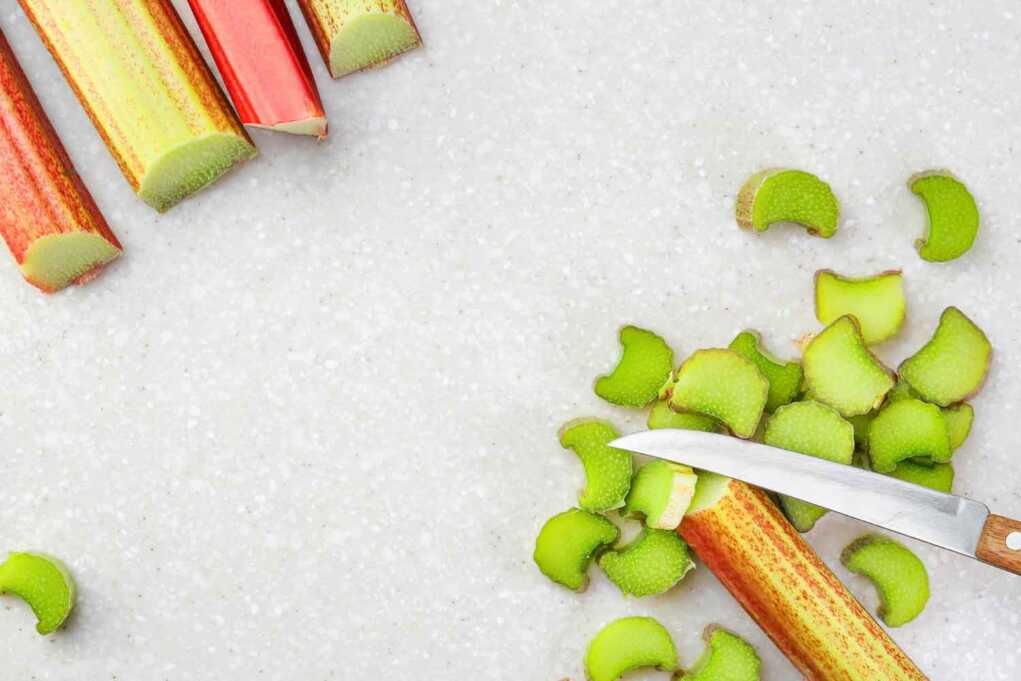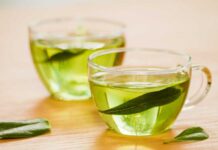
When you’re in the throes of kidney stone pain, you may not think about your diet much, but there are foods that are good for kidney stones and foods that aren’t. If you’re prone to forming kidney stones, eating certain foods and avoiding others can make a world of difference.
Tip
Eating five to nine servings of vegetables and fruits every day can help reduce your risk of developing all kinds of kidney stones. Calcium-rich vegetables, like kale, broccoli, turnip greens, acorn squash and Chinese cabbage may specifically help protect you against calcium oxalate kidney stones, the most common form.
What Is a Kidney Stone?
Kidney stones are hard, pebble-like masses that form in one or both of your kidneys. They vary widely in size and, according to the National Institute of Diabetes and Digestive and Kidney Diseases, may be as small as a single grain of sand or, in some rare cases, as big as a golf ball. Approximately 6 percent of women and 11 percent of men in the United States experience kidney stones at least once during their lifetime.
There are different types of kidney stones, and each type may require a different type of treatment plan, along with a different type of kidney stone diet. Some foods that are good for kidney stones caused by calcium and oxalate aren’t good for kidney stones caused by uric acid, and vice versa.
Kidney Stone Diet Foods
Calcium oxalate kidney stones are the most common type of kidney stone. They form when a substance called oxalate gets too concentrated in the urine and combines with calcium and becomes crystallized. Several different vegetables are high in oxalates, and avoiding them may help prevent calcium oxalate stones. These vegetables include:
- Spinach
- Rhubarb
- Swiss chard
- Beets
- Sweet potatoes
But it’s not just vegetables that contribute to calcium oxalate stones, there are other foods and drinks that you may need to avoid as well, like chocolate, peanuts and tea. However, although calcium is a component of calcium oxalate stones, it isn’t necessary to cut back on calcium-rich foods.
It’s actually more beneficial to make sure you’re getting enough calcium because the mineral binds to oxalate in the intestines and prevents it from traveling to your kidneys.
Getting Enough Calcium
When you hear the word “calcium,” you probably think of dairy products like milk, cheese and yogurt, but there are several vegetables that are rich in calcium, as well. Consuming adequate amounts of these vegetables can help you meet your calcium needs and decrease your risk of getting calcium oxalate kidney stones. Some vegetables that are high in calcium are:
- Turnip greens
- Collard greens
- Kale
- Chinese cabbage (bok choy)
- Broccoli
- Edamame
- Acorn squash
You can combine these nondairy sources of calcium with other calcium-rich foods, like canned sardines, beans, papaya and oranges to meet your needs, which are 1,000 to 1,200 milligrams per day. Eating calcium-rich foods at the same time as any foods containing oxalates can also help reduce your risk of stones.
Diet for Uric Acid Stones
Like calcium oxalate stones, uric acid stones form when certain compounds in the urine get too concentrated, but in this case, it’s uric acid instead of oxalate. Uric acid forms as a metabolic byproduct when the body breaks down compounds called purines, which are found in high amounts in animal proteins, like red meat, organ meats, shellfish, anchovies and sardines.
If you eat too many purine-rich foods, it can lead to the accumulation of uric acid in the urine and can cause uric acid stones. In addition to limiting your intake of animal proteins, you can reduce your risk of developing uric acid stones by following a diet that consists of mostly vegetables and fruits as well as some whole grains and grass-fed dairy products.
The Urology Care Foundation recommends eating at least five to nine servings of vegetables and fruits every day. In addition to providing calcium and helping to prevent certain types of kidney stones, fruits and vegetables are also high in potassium, fiber, magnesium, citrate, phytate and several antioxidants, which all work together in the body to prevent stones from forming.
Drink Enough Water
Although you can tailor your diet to help reduce your risk of developing kidney stones, the National Kidney Foundation notes that the single most important thing you can do is drink plenty of water. Drinking water helps increase the amount of urine your kidneys produce and dilutes the urine to help prevent the build-up of calcium or uric acid.
The general recommendation to prevent kidney stones is eight to 12 cups per day, but you may need more depending on how much you sweat. If you engage in a lot of physical activity, use the sauna or do hot yoga, it can increase the amount of water you lose through perspiration. The more sweat you lose, the less you’ll urinate, and that makes it more likely that calcium and uric acid will settle in the kidneys and form kidney stones.
If you sweat a lot, you’ll need to drink more than eight to 12 cups of water to replace what you lose and make sure you’re adequately hydrated.
References:
- National Institute of Diabetes and Digestive and Kidney Diseases: “Eating, Diet, & Nutrition for Kidney Stones”
- Michigan Medicine: “Kidney Stones: Preventing Kidney Stones Through Diet”
- National Kidney Foundation: “Kidney Stone Diet Plan and Prevention”
- Harvard Health Publishing: “What Causes Kidney Stones (And What to Do)”
- Cleveland Clinic: “Kidney Stones: Oxalate-Controlled Diet”
- Harvard Health Publishing: 5 Steps for Preventing Kidney Stones
- Urology Care Foundation: “Preventing Kidney Stones”
- Mayo Clinic: “Boost Your Calcium Levels Without Dairy? Yes You Can!”
- National Institute of Diabetes and Digestive and Kidney Diseases: “Definition and Facts for Kidney Stones”
Important Notice: This article was originally published at www.livestrong.com by Lindsay Boyers where all credits are due. Reviewed by Sylvie Tremblay, MSc
Disclaimer
The watching, interacting, and participation of any kind with anything on this page does not constitute or initiate a doctor-patient relationship with Dr. Farrah™. None of the statements here have been evaluated by the Food and Drug Administration (FDA). The products of Dr. Farrah™ are not intended to diagnose, treat, cure, or prevent any disease. The information being provided should only be considered for education and entertainment purposes only. If you feel that anything you see or hear may be of value to you on this page or on any other medium of any kind associated with, showing, or quoting anything relating to Dr. Farrah™ in any way at any time, you are encouraged to and agree to consult with a licensed healthcare professional in your area to discuss it. If you feel that you’re having a healthcare emergency, seek medical attention immediately. The views expressed here are simply either the views and opinions of Dr. Farrah™ or others appearing and are protected under the first amendment.
Dr. Farrah™ is a highly experienced Licensed Medical Doctor certified in evidence-based clinical nutrition, not some enthusiast, formulator, or medium promoting the wild and unrestrained use of nutrition products for health issues without clinical experience and scientific evidence of therapeutic benefit. Dr. Farrah™ has personally and keenly studied everything she recommends, and more importantly, she’s closely observed the reactions and results in a clinical setting countless times over the course of her career involving the treatment of over 150,000 patients.
Dr. Farrah™ promotes evidence-based natural approaches to health, which means integrating her individual scientific and clinical expertise with the best available external clinical evidence from systematic research. By individual clinical expertise, I refer to the proficiency and judgment that individual clinicians acquire through clinical experience and clinical practice.
Dr. Farrah™ does not make any representation or warranties with respect to the accuracy, applicability, fitness, or completeness of any multimedia content provided. Dr. Farrah™ does not warrant the performance, effectiveness, or applicability of any sites listed, linked, or referenced to, in, or by any multimedia content.
To be clear, the multimedia content is not intended to be a substitute for professional medical advice, diagnosis, or treatment. Always seek the advice of your physician or other qualified health providers with any questions you may have regarding a medical condition. Never disregard professional medical advice or delay in seeking it because of something you have read or seen in any website, video, image, or media of any kind. Dr. Farrah™ hereby disclaims any and all liability to any party for any direct, indirect, implied, punitive, special, incidental, or other consequential damages arising directly or indirectly from any use of the content, which is provided as is, and without warranties.








